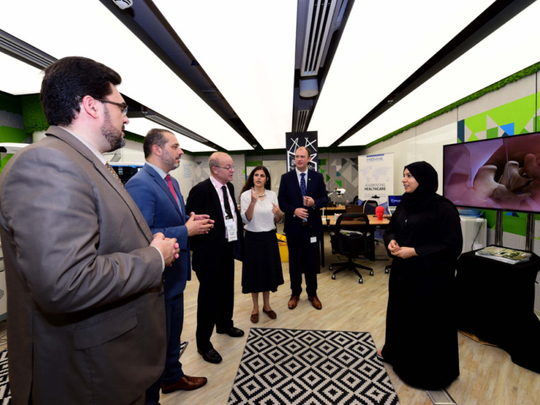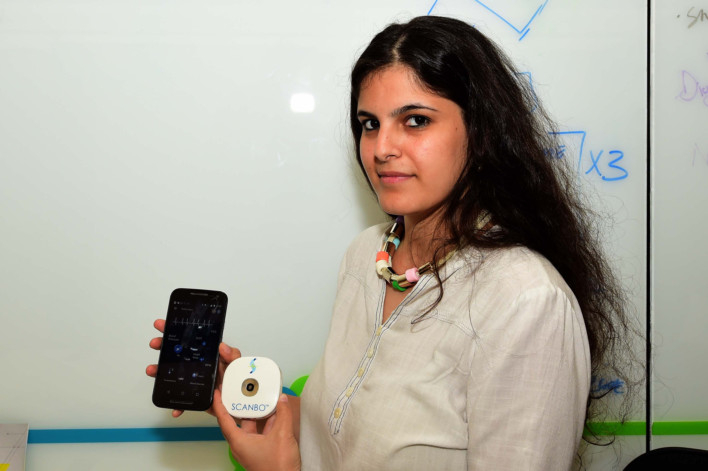
Dubai: Imagine monitoring six body vitals in one go in less than two minutes with a doctor instantly getting access to the results? Or a surgeon from a different part of the world virtually entering a local operating room to guide a surgery? Or a brain stroke being managed on a mobile unit?
All this and more could soon be a reality in Dubai as the grand ideas are being reviewed as part of the fifth cycle of the Dubai Future Accelerators programme currently underway.
Dr Shatha Al Ali of the DHA’s ‘Future’ team told Gulf News during an exclusive visit to its innovation hub, “We are working with select companies on some ideas over nine weeks, at the end of which proofs of concept will be established, ideas tried out in a pilot programme or products deployed in our hospitals.”
Smart device, smart clinic
Rohini Kaul, co-founder of Scanbo Technologies, said she had brought to the table a ‘smart device for a smart clinic’.
“We have introduced a single portable device with which you can measure six body vitals (blood pressure, temperature, hear rate, ECG, blood sugar and oxygen) in less than two minutes.” The device is connected to an app so reports can be recorded and accessed by doctors. “The aim is to empower both patient and doctor to foresee any minute deviation so there is timely intervention.”
Remote doctor steps in
Another technology that is being assessed is a cloud-based augmented reality platform which allows doctors to virtually transport themselves into any operating room or clinic to collaborate, guide, train or support other surgeons.
Bassem Hashah, managing partner of the platform Proximie, said, “The technology uses a device with a camera function such as a tablet or mobile phone and literally augments the transmission of the real physical world on screen with additional, digitally generated content. It allows remote “hands on” virtual assistance and enables a remote doctor to virtually “scrub in”.”
Mobile stroke solution
With time being critical in stroke management, one company has proposed a mobile stroke solution where a CT scanner can be installed inside an ambulance. Anas Al Aswad of Amico, which distributes the technology, said, “The CT scan can be done on the spot. The doctor at the hospital would have the images before the ambulance arrives. The paramedics also get instructions on how to manage the patient during transfer.”
Robotic assistant
He said Amico has also launched a robotic assistant Rosa for minimally invasive spine surgeries. “With real time guidance, the robot/human arm interface constantly interacts to retain the same trajectory in spite of the patient’s body movements. This facilitates the surgeon as he positions the screws according to his plan.”
Prenatal screening
Taking the identification and management of high risk pregnancies to the next level, a new strain of prenatal tests is being considered. P.J. Moloney, MD of P4ML, said the test is called Eolas Plus and helps detect five specific chromosomal disorders to provide valuable information in pregnancy management and preparation for newborn care.













